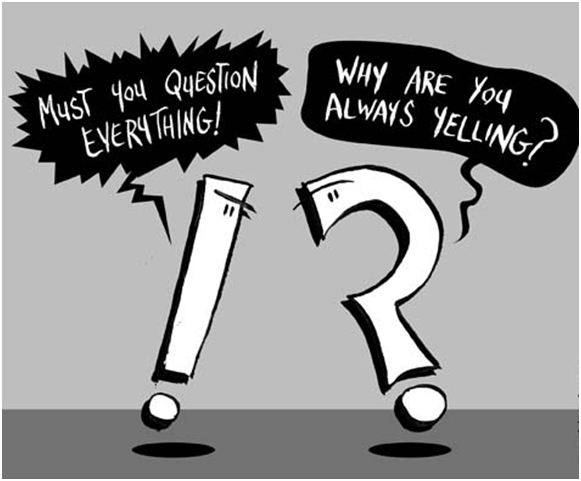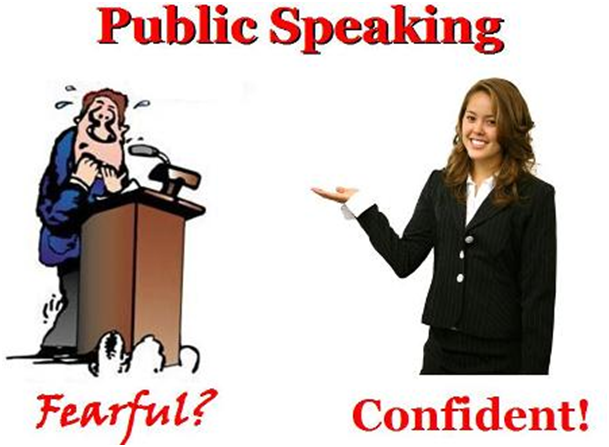Tips for Improving Pronunciation II
When you are having a conversation with others in English, do you have to repeat your sentences over and over again? Maybe it is not because you speak too fast, rather it could be due to your pronunciation. Yes, pronunciation plays a big role in developing your communication skills.
How you pronounce a word depends on two things – your tone and accent. For you to become proficient with the English language, you need to work on and improve English pronunciation. We have already given you useful tips for improving and understanding the right pronunciation. Practicing and selecting an accent are just the primary stages. Apart from that, there are various other ways to help you improve English pronunciation.
Before we explore the ways to get this task accomplished, let us learn why is it so important to learn and understand the rules of pronunciation.
English language is used for communication. The definition of communication is, strictly speaking, to share the ideas and thoughts using a common medium. Now , if two people speak two different 'varieties' of English, it will completely defeat the purpose. So, yes, we need to pronounce words in a particular way to facilitate understanding and sharing.
Secondly, the way you pronounce a word and how well you use it speaks oodles about your fluency with the language.
Now that you understand just why you need to improve English pronunciation, let us learn how to go about it.
• Break the words: This tip is especially handy when you encounter long words, and are left scratching your head, wondering what to do about it! In such cases, breath in, calm down and look at the word again. Let's us take one word for example, 'farther', now why not break this word in two and then try reading it again? 'Far'-'ther', now reading these 'two' words is easy, and once you have done that, join the two and read them together. You can apply this rule to most words: pro-nun-ciation, prag-matic, audio-visual!
• Record yourself: Do you fear that you fumble, speak too slow or fast or that you take long pauses, to give yourself some thinking time? The best way of finding out your mistakes, and eventually improving on them, is to record yourself when you speak English. This way you can hear it repeatedly and know where you make mistakes.
• Pay attention to the sounds: English is a confusing language, and we cannot stress enough about it. Many words are spelled differently from the way they are pronounced. Moreover, many words, when spoken together 'sound' a lot different. For example, if you are listening to English songs, you will realize that many times 'don't you' sounds like 'donchu'. To understand such words, you need to pay attention to the 'sounds' of words.
If you wish to improve English pronunciation, understand that it is not a one-time job. A good English language student is the one who keeps learning and improving. Getting a grip on the English language will help you excel in your career as well as boost your confidence. Get in touch with eAgeTutor and take your first step towards learning the English language.
How to Improve Communication Skills?
Do you feel shy to communicate with strangers? Do you get jitters with the thought of carrying out a conversation with your boss? Are you tongue-tied before a presentation in your office?
If your answer is YES to all these questions, then you are definitely scared of your communication skills. Many people worry about their poor communication skills to an extent that they stop communicating altogether. If you are making this grievous mistake, let me tell you it is not the right way to improve your conversation skills.
Effective communication is important in all spheres of life, both personal and professional. You cannot understand a person/subject/topic if you are unable to communicate properly. To rise and shine in the dynamic business world, good communication is a requisite. Let's look at some of the ways through which you can improve English communication.
Learn the basics
Communication means transfer of messages between a sender and a receiver through various modes, including written words, spoken words and nonverbal cues. Confidence is another essential aspect of effective communication. You should be confident that your point is worthwhile to the subject. Be aware of your opinions and stay confident in your expression. These can equip you to convey your message effectively. Start your practice of effective communication by carrying out simple conversations. Each day and every minute you can practice to better your conversational skills. Just stay on track and never give up, no matter how bleak the road ahead appears.
1. Keep your audience engaged
Communication is a two-way road and the response of your audience decides your fate. So, make an eye contact whenever you are with people. You may be listening, or speaking, it is important to maintain eye contact intact. This is the key to successful communication. Eye contact establishes the interest and at the same time motivates the speaker to go on. Hand and facial gestures are another way to support your conversation. Your gestures can speak more than your words, so pay attention. Keep your facial and hand gestures as well as your tone in sync.
2. Effective listening is vital
To improve your English communication skills it is important to develop effective listening skills first. A successful listener is the one who can decode not only the words that are being communicated but also the feelings and emotions that comes with it. Do not just pay attention to the end of the sentence, so that you can take ahead the conversation. The rule is to talk less and listen more.
3. Enjoy the power of words
When we say enjoy, we literally mean it. Words are a powerful tool and when said in the right manner, they can have the right impact. So, don't just rush with your words, speak clearly and precisely. Never mumble to get away from the conversation. If you are being asked all the time to repeat a sentence or word, then you are not communicating effectively. Make use of simple words and pay attention to your pronunciation. Speak with the right pace; if you rush with your words, people will think that you are a nervous speaker. So, be careful with your pace.
Hope the above English tutorial is helpful in improving your English communication skills.
How to Use Punctuation Correctly? Part - I
One of the most common and basic mistake that most of us commit while writing is the wrong use of punctuation marks. In today's modern age, when we are more fluent with the SMS language and the slang terms, we have forgotten the fundamentals of English like Punctuation. How many of us can proudly say we know A-Z about punctuation. Let's consider this article as your free English learning guide to punctuation.
Definition of punctuation
Wikipedia definition
"Punctuation marks are symbols that indicate the structure and organization of written language, as well as intonation and pauses to be observed when reading aloud."
The Oxford dictionary defines, "the marks, such as a full stop, comma, and brackets, used in writing to separate sentences and their elements and to clarify meaning."
In simple words, a set of symbols that are used in writing to guide a reader know the structure of a sentence. Punctuation guides us to change the rhythm, highlight a word in our speech and show the right expression. The common punctuation marks in English include the comma, apostrophe, period, quotation mark, exclamation mark, question mark, bracket, hyphen, dash, semicolon, ellipsis, and colon. Each punctuation mark has a specific purpose and use in the English language. Some may have varied meanings; based on the context they are used.
Punctuation rules 
End of the sentence punctuation
Every sentence that you write has to end somewhere. This ending punctuation mark can be a full stop or period, exclamation mark, question mark or an ellipsis. These punctuation marks terminate a sentence. The default terminal punctuation mark is a period or a full stop.
Ex: He lives in Chicago
The period is used here to finish the sentence without disclosing any other meaning.
Question mark: When you end a sentence in a question mark, you suggest an inquiry or an interrogatory remark.
Ex: What is your name?
The question mark is used to inquire a person's name.
Exclamation mark: It is used to suggest excitement or emphasis in a sentence.
Ex: I can't believe I am going to UK!
Ellipsis: It is a punctuation that is used when some part of a sentence is being omitted; usually used in quotes.
Ex: "[...] the President was excited as he laid out the growth policies in the agricultural sector."
Semicolon (;) vs. colon (:)
We all have studied the use of Semicolon while learning English grammar in our school. However, do you understand the difference between a colon and a semicolon? A semicolon is used when the writer wants to link two related, but independent clauses. There is always an argument, why not a period but a semicolon. Of course, if you think your sentence is too wordy, you can use a period, but avoid using it if you think it will create a strong break between the sentences.
Example: Several fast food restaurants can be found within the cities: London, England; Paris, France; Dublin, Ireland; and Madrid, Spain.
Now, let's learn the English lesson on the use of the colon. This punctuation mark is used to introduce a list. It can be used with ratios, titles and subtitles of books, hours and minutes.
Example: The concert begins at 21:45.
The following are our services:
We shall continue our free English learning session in our next blog on how to use English punctuation correctly. Till then, practice and observe the above punctuation marks to improve your English skills.
Dos and Don'ts of Public Speaking
 One important aspect to study while learning to improve spoken English is to understand the principles of public speaking. Most of us at some point of time in life have to speak in front of a crowd. Whether it is a presentation in your office or a project as part of your course curriculum, public speaking is a requisite. Good communication and a presence of mind help a lot in effectively delivering your message. But for people who have a doubt on their speaking skills, especially their language skills, for them nervousness is at another level. These people don't just have to overcome the stares of people but also their inner fear of English speaking.
One important aspect to study while learning to improve spoken English is to understand the principles of public speaking. Most of us at some point of time in life have to speak in front of a crowd. Whether it is a presentation in your office or a project as part of your course curriculum, public speaking is a requisite. Good communication and a presence of mind help a lot in effectively delivering your message. But for people who have a doubt on their speaking skills, especially their language skills, for them nervousness is at another level. These people don't just have to overcome the stares of people but also their inner fear of English speaking.
It is a fact that some people are natural at public speaking while some face a hard time doing it. However, it is something that we all can mend ways with. Public speaking is not confined to just your language skills, it entails your facial expressions, body language, the ease with which you communicate and a whole lot of other factors.
Let's look at the dos and don'ts that you should keep in mind before facing a group of people.
1. Basic– Dos
Be enthusiastic – Show your enthusiasm and energy.
Face the audience – Manage your presentation such that you face the audience at all times. Don't show them your back.
Speak clearly – Be loud enough that the audience gets your message even the back benchers.
2. Basic – Don'ts
Don't show your nervousness – Don't fidget with things in your hands. Make only purposeful movement and gestures.
Don't play with your slides – Either move on to next slide or stick to one you are explaining, avoid confusion with your audio-visual aid.
Don't do awkward gestures – It's a strict no-no to put your hands in the pocket. Don't have awkward hand or facial gestures that create diversion.
3. English – Dos
Define your words – Do define any word or phrase that you think the audience is not familiar with. It is important to remember that not all sitting in a group belong to the same background as you.
Be Precise and simple – Be as precise and simple when it comes to talking. Don't use complex words like "panache"; instead you can use "style or flair". Keep it as simple, and precise as possible.
4. English – Don'ts
Don't start with affirmative words – This is the first lesson in how to improve communication skills. Always start with a positive word. A lethargic start to a sentence, for instance - So, we all are gathered here to discuss on IELTS preparation, sounds dull.
Don't introduce a topic with a start like 'briefly' – When you start your topic with something like "Briefly"; it implies that the intro is redundant but still forced on the listeners. It is better to avoid such an apologetic start.
Conclusion
When you are learning to speak English, a public speaking experience would add to your learning. Speaking English fluently is one the main concerns that makes us nervous before a presentation. However, if you are well-acquainted with your topic and have structured it well, the language barrier would not be a stumbling block. Organize your presentation, giving yourself enough space to speak slowly and clearly. Don't rush with your talk and gasp for words. Practice and practice more to get your speech right. All the best!




